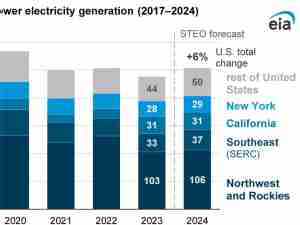U.S. ethanol exports to Brazil face tariff increase
By: Reuters | Jun 22 2015 at 10:37 PM | International Trade
SAO PAULO - Brazil increased a tariff on imported ethanol to 11.75 percent on Monday, in a move expected to benefit local cane mills and put further pressure on shipments of U.S. ethanol, which account for the bulk of imports to Brazil.
In late May, the Senate passed Bill 668, which raises Brazil’s so-called PIS-COFINS taxes on a broad array of imports including ethanol to 11.75 percent. President Dilma Rousseff signed the bill into law late on Friday, a spokesman at the Presidential Palace said on Monday.
The federal government’s Official Daily Register (DOU) published the tariff hike on Monday evening. Rousseff vetoed some items in the bill but the tariff increase on ethanol remained intact.
The import tariff increase was due to go into effect immediately.
Foreign ethanol currently arriving in Brazilian ports gets a PIS-COFINS of 9.25 percent but the importer then gets a credit which fully offsets the tariff.
“This credit will end altogether when the government raises the tariff, so it is a full increase of 11.75 percent,” said Tarcilo Rodrigues, chief analyst at local brokers and consultants Bio Agencia.
Brazil imported 357 million liters of ethanol from the United States from January through May, up 26 percent from 282 million liters over the first five months of 2014, according to Trade Ministry data.
Brazil is the world’s second-largest producer of ethanol after the United States but it makes its biofuel from cane rather than corn. Brazil’s northeast regularly imports U.S. ethanol.
Traders say U.S. ethanol shipments into Brazil in 2015, which went mostly to the northeast region, were likely deals closed when prices were still attractive in 2014.
“The arbitrage is not attractive in this direction any more but this tariff increase will totally chill down trade,” Arnoldo Correa, head analyst at Archer Consulting, said.
U.S. ethanol traders also expressed concern, calling the tariff hike a “significant barrier” to exports. U.S. inventories of the biofuel are near their highest since 2012 and futures prices could come under pressure.










